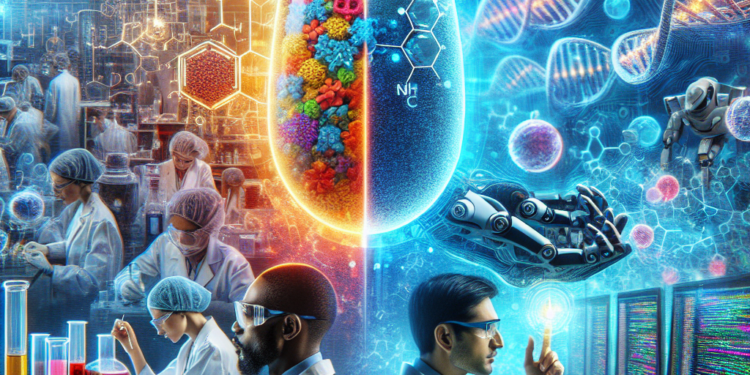Drug discovery has long been a time-consuming and costly process in the field of medicine. It can often take years, even decades, for researchers to identify and develop a new drug that is both safe and effective for treating a specific disease. However, recent advancements in artificial intelligence (AI) are revolutionizing the drug discovery process, making it faster and more efficient than ever before.
AI, a branch of computer science that focuses on the development of intelligent machines that can perform tasks that typically require human intelligence, has the potential to significantly accelerate the drug discovery process. By harnessing the power of AI, researchers can analyze vast amounts of data, identify potential drug candidates, predict drug interactions and side effects, and even design new molecules with specific therapeutic properties.
One of the key ways in which AI is transforming the drug discovery process is through the use of machine learning algorithms. These algorithms are designed to analyze large datasets and identify patterns and trends that may not be immediately apparent to human researchers. By applying machine learning to genetic and molecular data, researchers can uncover potential drug targets and develop novel treatments for a wide range of diseases.
For example, researchers have successfully used machine learning algorithms to identify new therapeutic targets for cancer, neurological disorders, and infectious diseases. By analyzing genetic and protein data, machine learning algorithms can predict how different molecules will interact with specific proteins in the body, allowing researchers to design drugs that target these proteins with pinpoint accuracy.
In addition to identifying potential drug targets, AI can also be used to predict the safety and efficacy of new drugs before they are tested in clinical trials. By analyzing data from previous drug trials, machine learning algorithms can predict how a new drug will interact with various biological systems, identify potential side effects, and even suggest ways to optimize the drug’s effectiveness.
Furthermore, AI can also be used to design new drugs from scratch. By analyzing the chemical structures of existing drugs and predicting how they will interact with biological systems, researchers can use AI algorithms to generate new molecules with specific therapeutic properties. This approach, known as de novo drug design, has the potential to revolutionize the way in which drugs are developed and tested.
In recent years, several startups and pharmaceutical companies have begun to incorporate AI into their drug discovery processes. One example is Atomwise, a San Francisco-based startup that uses AI algorithms to identify potential drug candidates for a wide range of diseases. Atomwise’s platform, AtomNet, is capable of analyzing millions of chemical compounds and predicting how they will interact with specific disease targets, allowing researchers to rapidly screen potential drug candidates and identify new treatments for a variety of illnesses.
Another example is BenevolentAI, a London-based company that uses AI algorithms to analyze biomedical data and identify new drug targets for a variety of diseases. BenevolentAI’s platform, known as the Knowledge Graph, is capable of integrating data from a wide range of sources, including scientific literature, clinical trials, and patient records, to identify potential drug targets and develop novel treatments for a variety of illnesses.
Overall, the use of AI in drug discovery is revolutionizing the field of medicine, making it faster, more efficient, and more precise than ever before. By harnessing the power of machine learning algorithms and predictive analytics, researchers are able to identify new drug targets, predict drug interactions and side effects, and design new molecules with specific therapeutic properties. As AI continues to advance, we can expect to see even more innovative and groundbreaking developments in the field of drug discovery, leading to the development of new treatments for a wide range of diseases.













